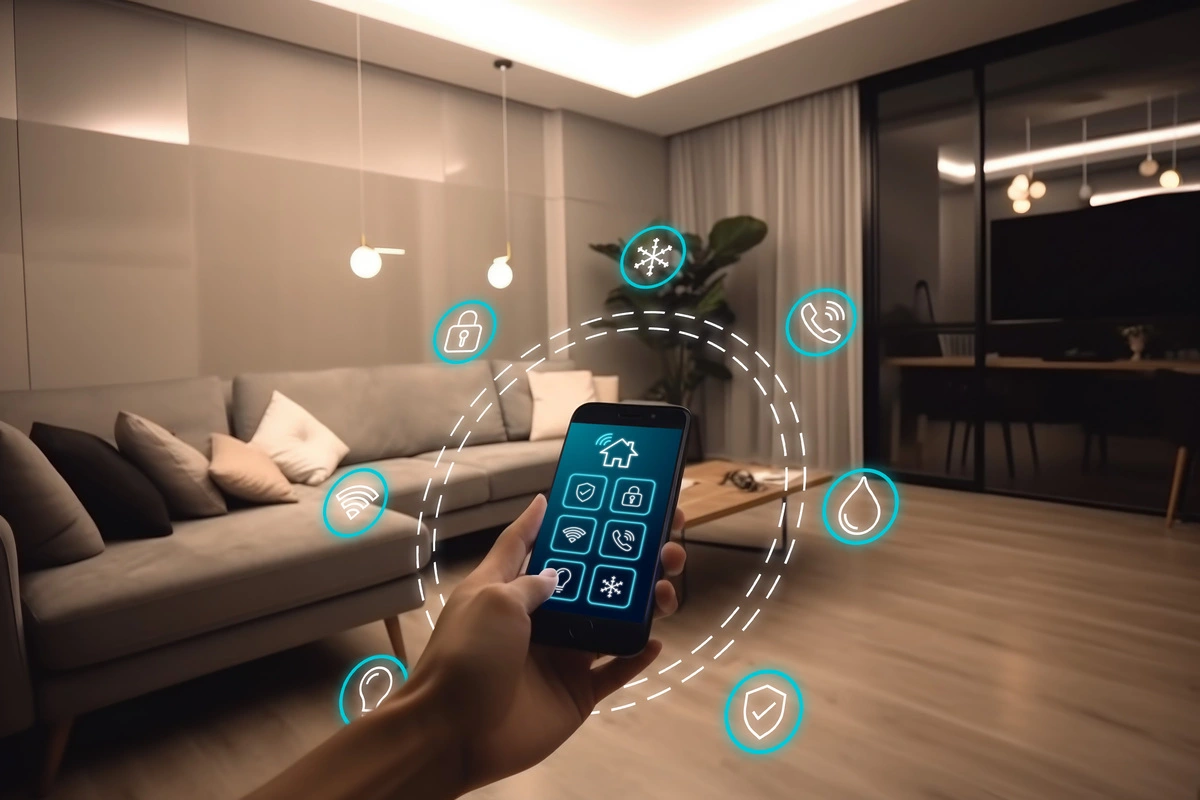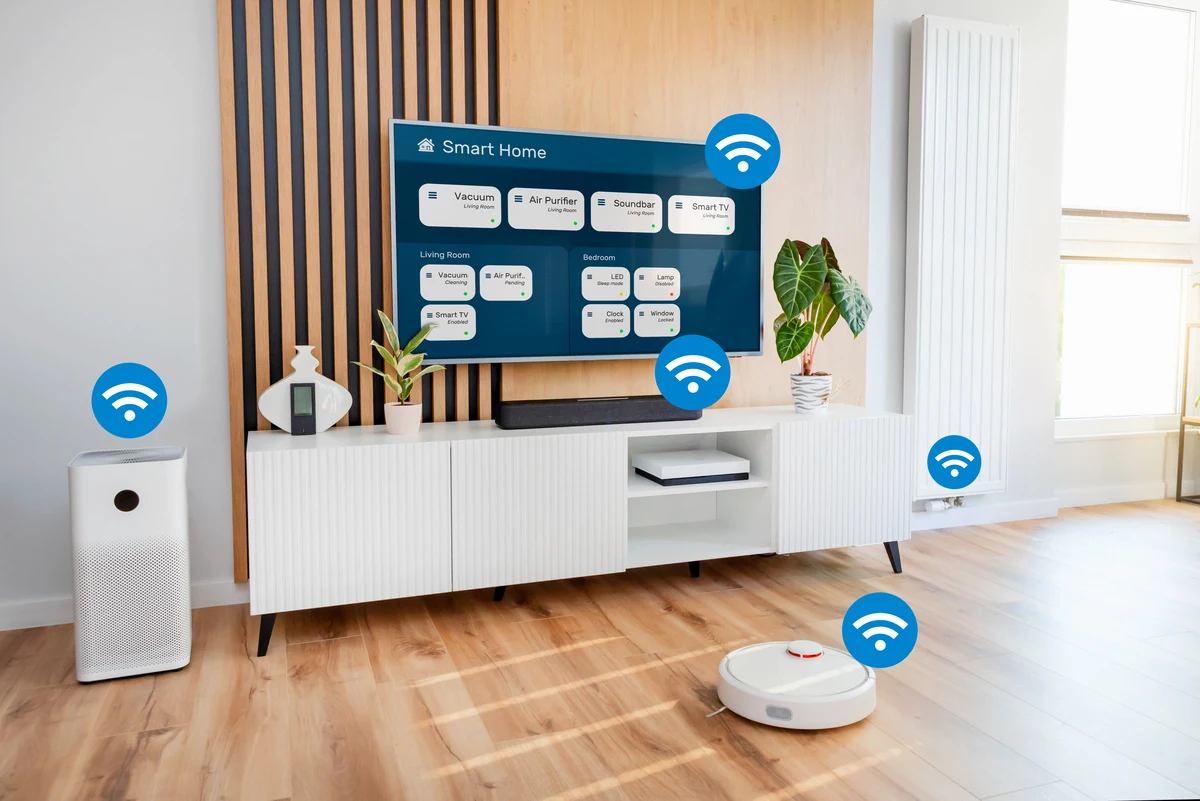Smart home automation devices have changed the way we use our homes by making them safer, more efficient, and easier to use. Smart home automation devices have many benefits, such as security systems that can be watched from anywhere and thermostats that can be changed from afar.
This article will talk about the various types of smart home automation devices and how they can make your daily life better, whether you are a tech fanatic or just want to make your home more useful.
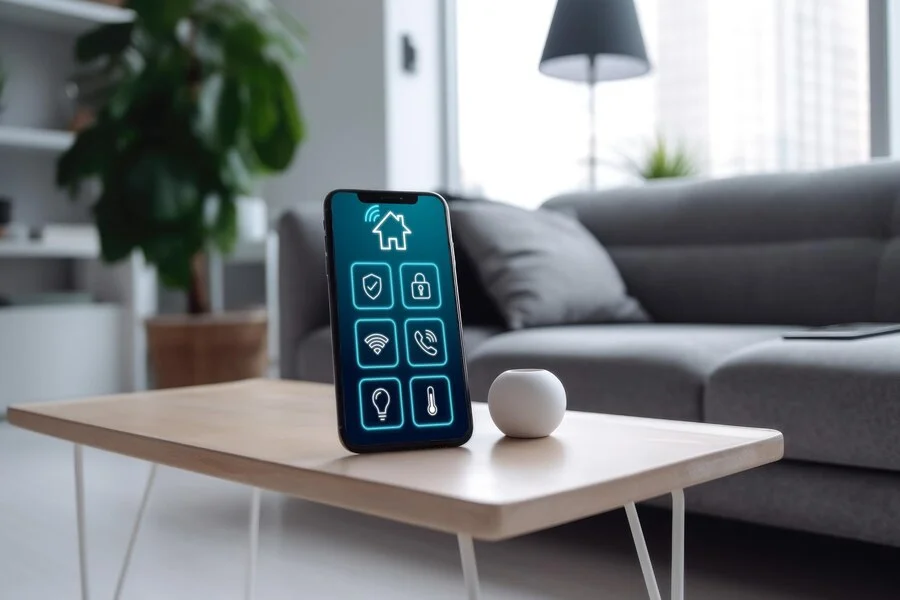
What are smart home automation devices?
They are electronic devices that can be linked to a home network and managed from a smartphone or other internet-connected device. With sensors, software, and connectivity, these devices can manage and control different things in your home.
Smart home automation devices include smart thermostats that let you change your home’s temperature from anywhere, smart door locks that let you in without a key and can be controlled from afar, and smart lighting systems that let you use your phone to turn lights on and off, dim them, or change their color.
These devices are made to be easy to use. They come with simple apps or displays that make it simple to set up and run your smart home. They can also be connected to other smart devices, like security systems or voice assistants, to make a home control ecosystem that works well together.
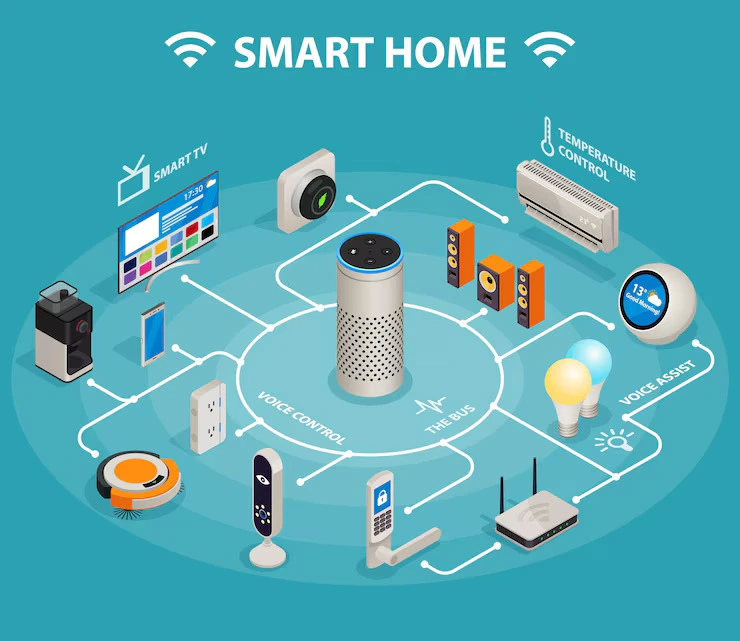
Types of smart home automation devices
There are a wide variety of smart home automation devices available on the market today. These devices can be categorized into different types based on their functionality and purpose. Here are three popular types of smart home automation devices:
1. Smart Security Devices: These are made to make your home safer. Smart door locks, security cameras, and motion sensors are some examples. Smart door locks let you in without a key and can be controlled from afar, and security cameras let you keep an eye on your home from anywhere. Motion sensors can tell right away if someone is moving around without permission and send you an alert.
2. Smart Energy Management Devices: These enable you to make the best use of energy and lower your environmental impact. Smart thermostats let you change your home’s temperature, which saves energy and lowers your utility bills. Smart switches can turn off power to devices that aren’t being used.
3. Smart entertainment devices: These are made to make your home entertainment experience better. For example, smart speakers can play music from a number of different platforms, answer your questions, and let you use your mouth to control other smart devices. Smart TVs have features like voice control, streaming services, and suggestions based on what you’ve watched in the past.
There are smart devices that can help you reach your goals, whether they are to make your home safer, save energy, or create a more immersive entertainment experience. We’ll talk about the pros of adding these devices to your home automation system in the next part.
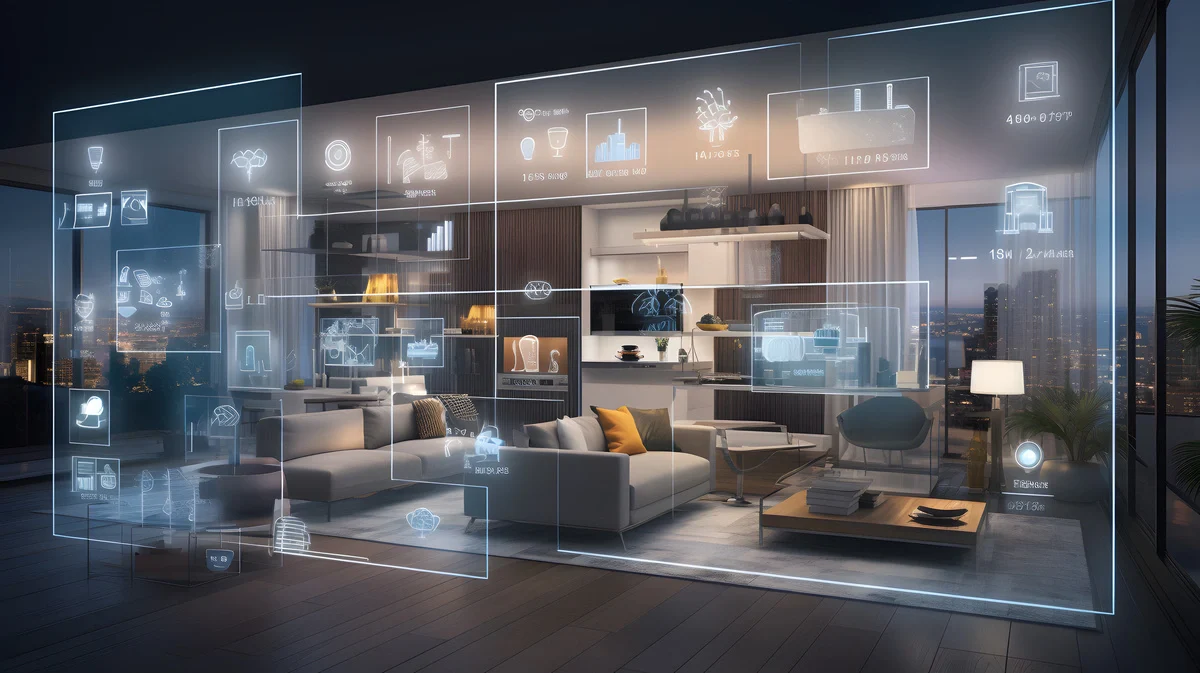
Benefits of using smart home automation devices
Using smart home automation devices offers numerous benefits that can greatly enhance your daily life. Here are some advantages of incorporating these devices into your home automation system:
1-The first thing is comfort and ease of use. You can control and keep an eye on your whole house with just a few taps or words if you connect your devices to a central hub or use voice commands. You can easily change the temperature, turn off the lights, or lock your door, which saves you time and effort.
2-Second, enhanced security. Smart security devices give your home an extra layer of safety. You can keep an eye on your property even when you’re not there with real-time alerts, remote access, and video tracking. This extra peace of mind is very helpful for keeping your family safe and keeping potential attackers away.
3-Third, energy efficiency. Smart energy control devices help you use less energy and leave less of a carbon footprint. You can easily change settings to save energy when you need to by managing your thermostat, smart lights, and power outlets remotely. This is good for the environment and will save you money in the long run on your energy bills.
Finally, an enhanced entertainment experience. You can turn your home into a multimedia hub with smart entertainment devices. You can easily stream movies, TV shows, music, and control your devices with your voice. You can also get unique suggestions based on what you like.
Overall, using smart home automation devices in your daily life makes things easier, safer, lowers your energy costs, and makes fun better.
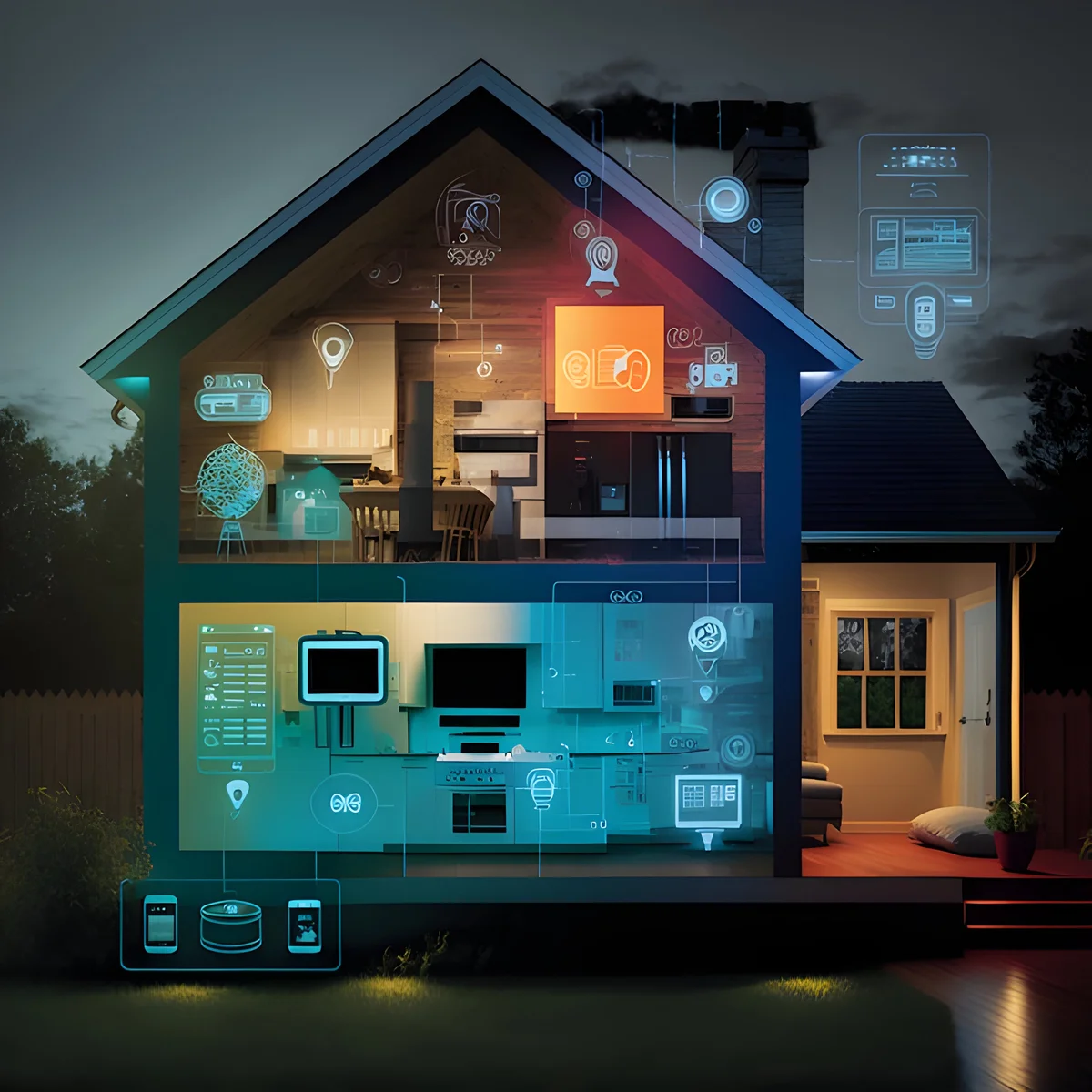
Factors to consider when choosing smart home automation devices
When it comes to choosing the right smart home automation devices for your needs, there are several factors to consider. These factors will help you make an informed decision and ensure that you are investing in devices that are compatible with your existing home automation system and meet your specific requirements.
Compatibility is the first thing to think about. Before you buy something, you should make sure that it will work with the smart home control system you already have. In this way, all of your devices will be able to work together without any problems.
The second factor is functionality. Plan out what you want the tech to do. Do you want to be able to handle your thermostat, lights, or security cameras? Do you want advanced schedule tools, voice control, or access from afar? Figuring out what features you want will help you cut down your choices.
Another important factor to consider is ease of use. Search for devices with easy-to-use controls and mobile apps that are simple to use. This will make it easy for you to keep an eye on and control your devices.
Next, think about the device’s quality and reliability. Look for companies with a reputation for providing high-quality, long-lasting products. Reading user reviews and checking product ratings might provide vital information about the dependability of the devices you’re considering.
Finally, consider your budget. Before you look at your possibilities, set a sensible budget. Smart home automation devices exist in a variety of pricing, so it’s crucial to pick ones that fit your budget while still meeting your needs.
By considering these factors, you can choose the best smart home automation devices for your home that will enhance your daily life and provide you with the convenience, security, and energy efficiency you desire.
In conclusion, the future of smart home automation devices looks promising. As technology continues to advance, we can expect even more innovative and sophisticated products to enter the market. From voice-controlled assistants to AI-powered devices, the possibilities for creating a truly smart and efficient home are endless.
However, it’s important to remember that while these devices offer convenience and automation, they also come with potential privacy and security risks. It’s crucial to stay informed about the latest security measures, regularly update your devices’ firmware, and be cautious about granting permissions and access to your personal data.
